Vietnan/Agosto de 2017/Fuente: VN Express
Resumen: Las instituciones de formación de profesores están listos para aceptar a estudiantes de primer año que no lograron entender los conceptos básicos en la escuela secundaria. Ahora resulta ser mucho más fácil si quieres convertirte en un educador. Los colegios de enseñanza han anunciado sus calificaciones mínimas de entrada, y los futuros profesores necesitan sólo un sorprendentemente bajo nueve de cada 30 en algunas partes del país. Los estudiantes vietnamitas del 12º grado tomaron el examen nacional en junio con pruebas separadas en matemáticas, literatura, inglés y ciencias. Su puntuación total en tres de estas pruebas se utilizan para determinar qué escuela, si la hay, será aceptada por. Mientras que los resultados promedio de los estudiantes aumentaron desde el año pasado y la mayoría de las escuelas están exigiendo puntuaciones más altas, que los expertos atribuyen a pruebas más fáciles, las instituciones de formación de los profesores están pidiendo lo mismo que el año pasado o menos.
Teacher training institutions are poised to accept freshmen who failed to grasp the basics in high school.
Remember our story from last week about how a high school graduate needs a perfect score to enroll in military or police schools in Vietnam? Now it turns out to be much easier if you want to become an educator.
Teaching colleges have announced their minimum entrance scores, and prospective teachers need just a shockingly low nine out of 30 in some parts of the country.
Vietnamese 12th graders took the national exam in June with separate tests in math, literature, English and sciences. Their total scores in three of these tests are used to determine what school, if any, they will be accepted by.
While the average results from students rose from last year and most schools are demanding higher scores, which experts attribute to easier tests, teachers’ training institutions are asking for the same as last year or less.
There are basically two levels of teacher training in Vietnam: colleges and universities. While someone who graduates from a university is eligible to teach at a university, those with a college degree are only qualified to teach students up to ninth grade.
Leading teaching universities in Vietnam such as those in Da Nang, Hanoi and Saigon have maintained their entrance scores at between 16 and 26.
But Hue’s University of Education has lowered the bar for future math teachers by 5.5 points to 16. The entrance score for chemistry majors has also been cut by three points to less than 13.
Its counterparts in Nghe An, Thai Nguyen and Dong Nai are asking for 17, which means future teachers only need to be average high school graduates.
The standard is much lower at college level.
Colleges from Lao Cai in the northern highlands to Ba Ria-Vung Tau on the southern coast are asking for a combined score of nine or 10, and the National College for Education in Hanoi has set the standard at 13 points.
Vu Thu Huong, a lecturer at the Hanoi University of Education, said she is “concerned” with this year’s enrollment.
Huong, a seasoned educator who is very vocal in the media about educational reform, said she had met graduates who could not understand chemical symbols; who believed that the normal speed of a car was five meters an hour; and who explained to students that islands were the reason there are waves in the sea.
“There is no silver bullet that can save those who have a serious lack of basic knowledge,” she said.
Dinh Quang Bao, the former president of the Hanoi University of Education, also called the low benchmark “a disaster” for Vietnamese education.
“If we set the bar too low, we won’t be able to provide quality teachers,” he told Infonet, the information ministry’s news website, in an interview on Tuesday.
Bao said that if a school cannot attract good students, it shouldn’t run courses because there is already a high unemployment rate among teachers.
Every year, around 4,000 students who graduate from teaching schools are unable to find a job in Vietnam, and the surplus is expected to reach 70,000 by 2020, according to official figures.
That’s possibly the main reason why teacher training schools are being shunned in Vietnam, while their free tuition is supposed to be a major draw compared to the thousands of dollars it costs for a four-year course at any other public university.
Bao said that while educational universities in countries with successful systems such as Japan or Finland attract the best students each year, the good students in Vietnam are turning their backs on education.
He said the system needs to guarantee jobs for graduates in the same way military and police schools do, and the salaries should be enough to give teachers a comfortable life.
Public preschools in Vietnam pay fresh graduates around VND2 million (less than $100) per month for them to take care of 15-20 toddlers. The average annual income in Vietnam was $2,200 last year.
In Saigon, the country’s most affluent city, many public teachers are paid less than VND10 million ($440) a month after spending decades in the job, a salary many describe as “just enough for a couple of trips to the grocery store.”
In remote mountainous provinces, many young teachers climb mountains and cross rivers every day for a much lower income.
Fuente: http://e.vnexpress.net/news/news/disaster-as-vietnam-sets-the-bar-low-for-future-teachers-3624305.html

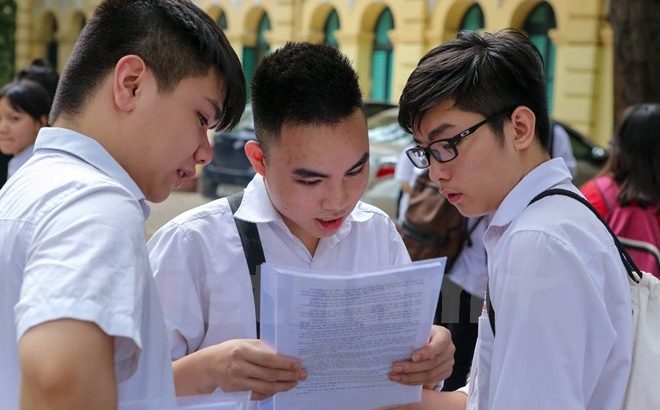

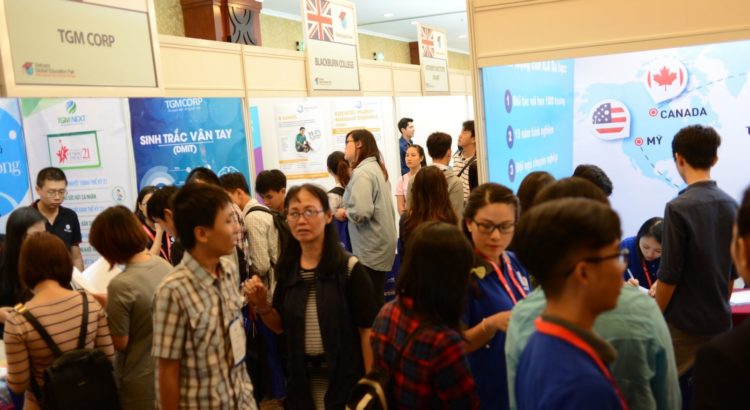
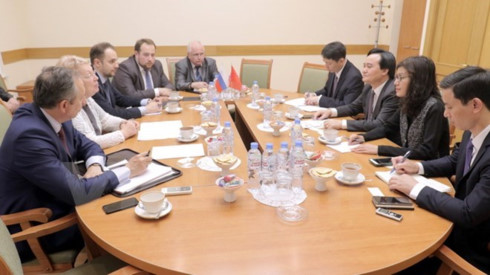
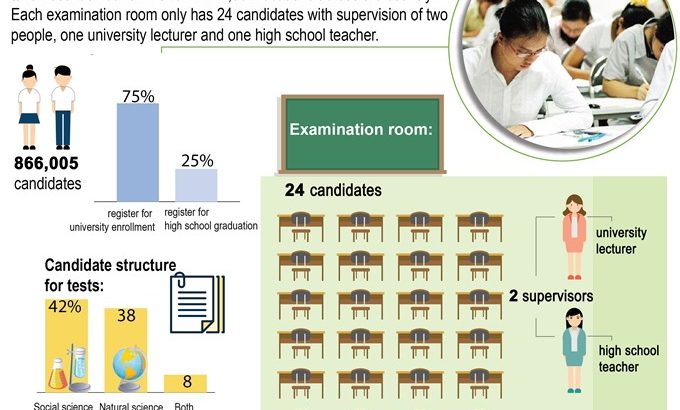
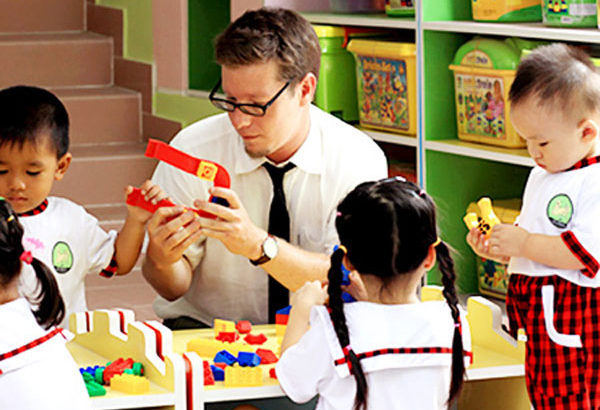






 Users Today : 9
Users Today : 9 Total Users : 35459604
Total Users : 35459604 Views Today : 22
Views Today : 22 Total views : 3417994
Total views : 3417994